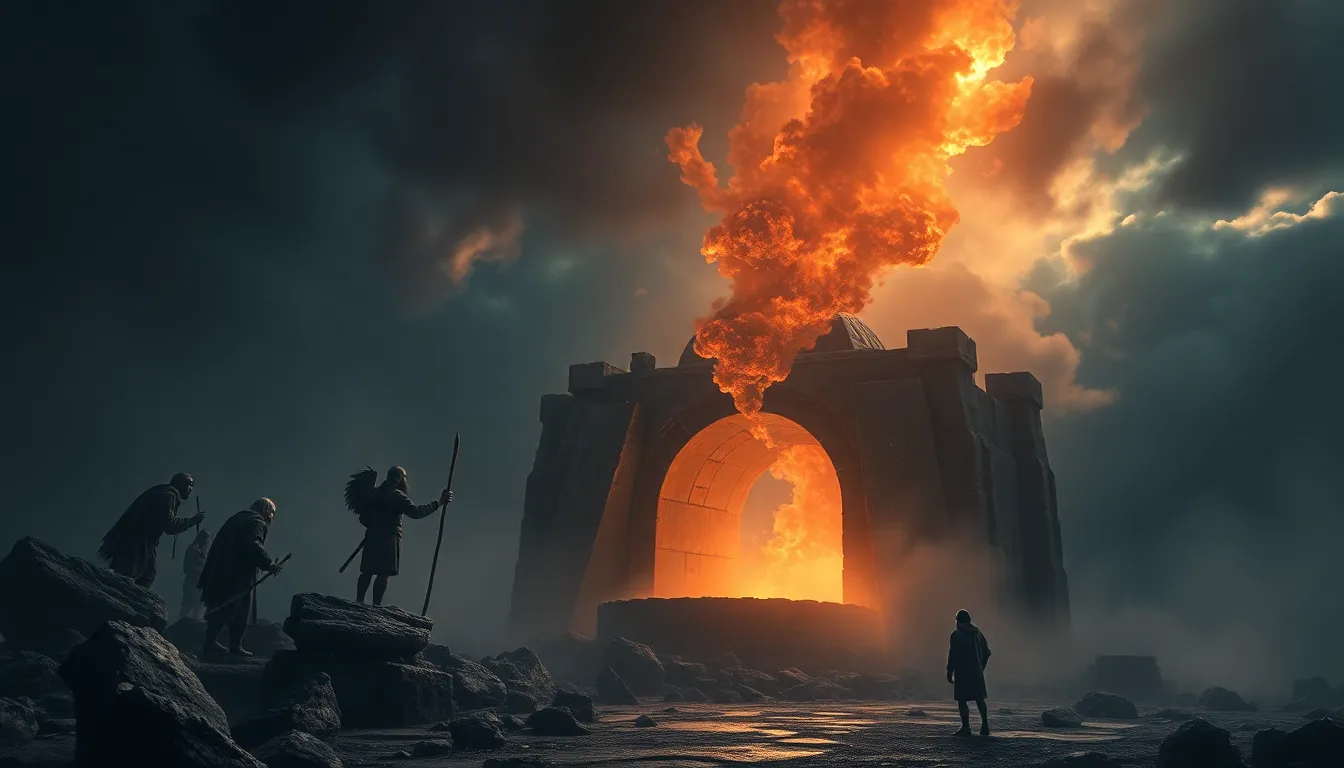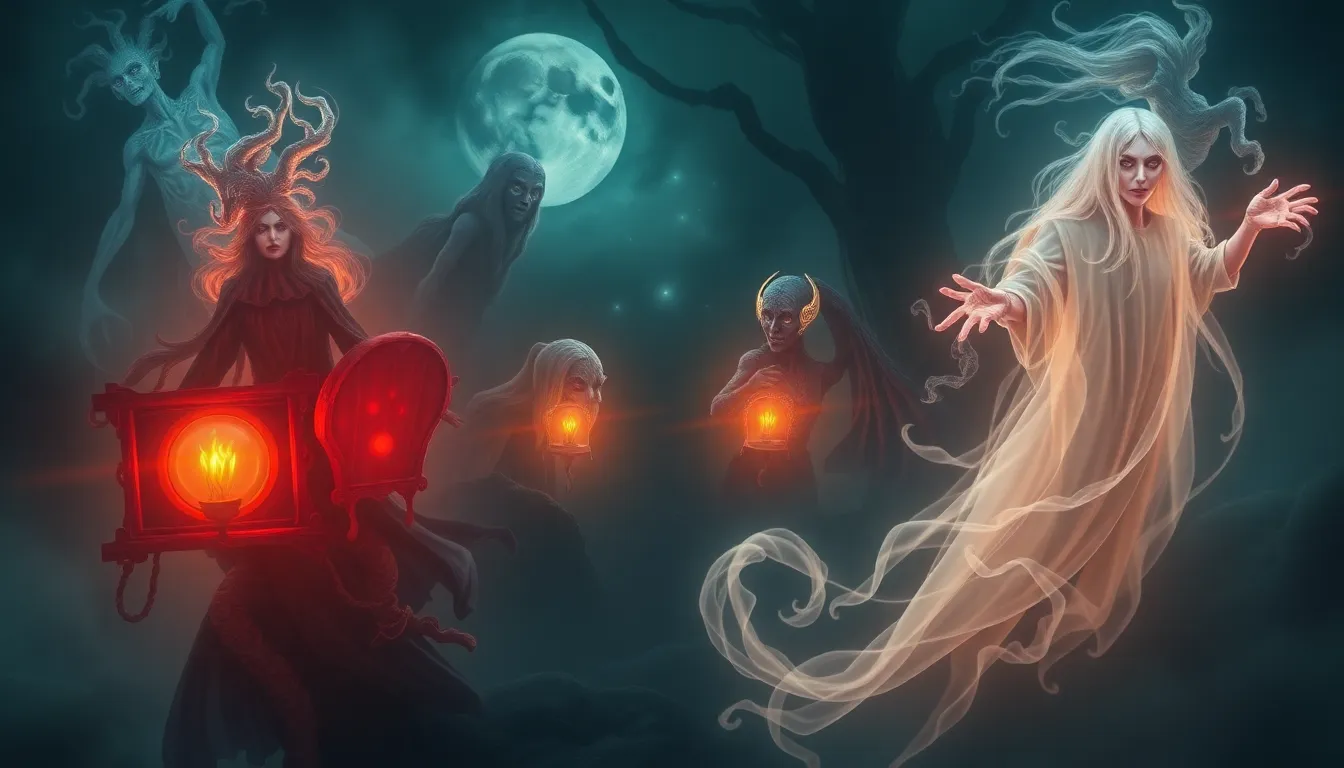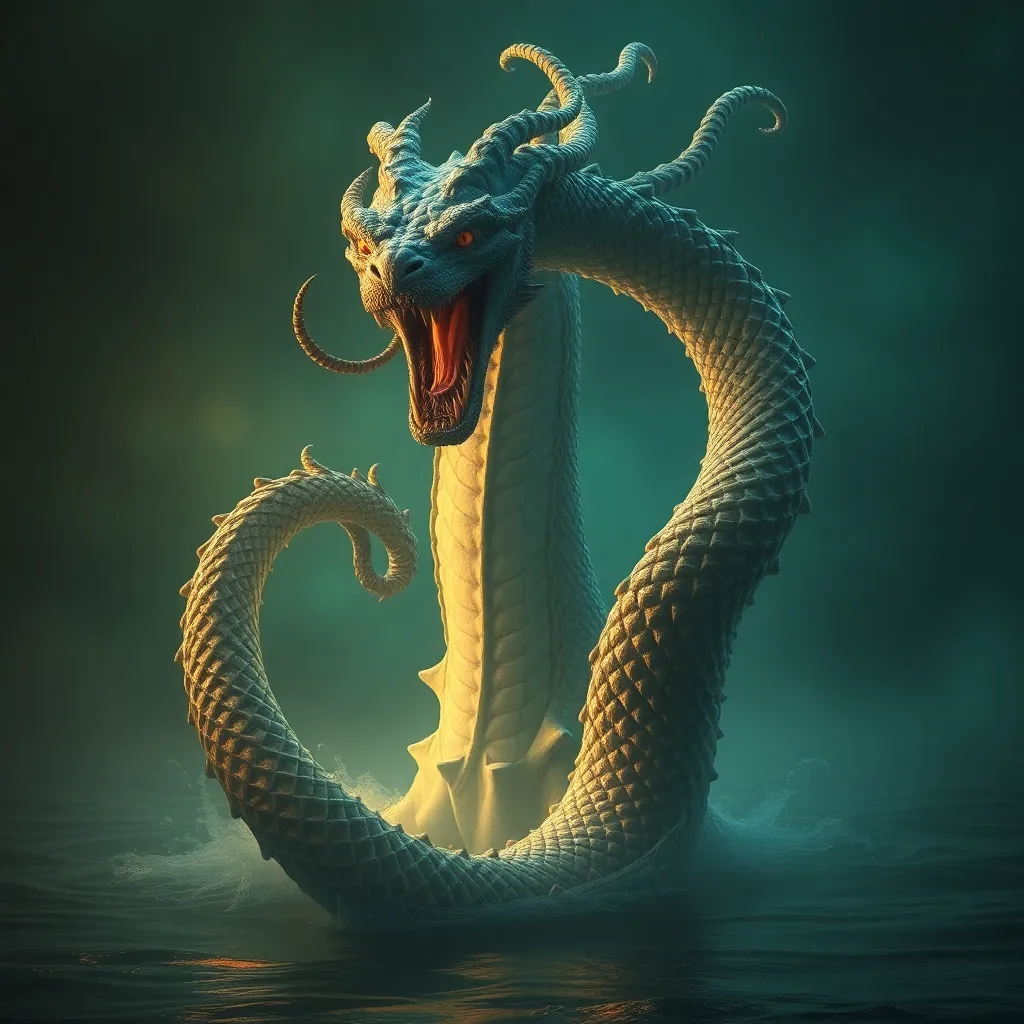The Mythical Forge: How Creation Myths Shape Our Worldviews
I. Introduction
Creation myths are foundational narratives that explain how the universe, the earth, and life came into existence. These myths hold significant cultural weight, providing insights into the values, beliefs, and histories of various societies. The purpose of this article is to explore the role of creation myths in shaping worldviews across cultures, examining their themes, functions, and the ways they continue to influence modern society.
II. Understanding Creation Myths
A. What are creation myths?
Creation myths are traditional stories that articulate the origins of the world and humanity. They often encompass a variety of elements, including deities, cosmic events, and the emergence of life. These narratives serve to explain complex concepts in ways that are accessible and meaningful to the cultures that tell them.
B. Common themes and narratives in creation myths
Several recurring themes can be found in creation myths worldwide:
- Chaos to Order: Many myths describe a transition from a state of chaos to one of order, reflecting the human desire for stability.
- Divine Creation: Numerous myths feature gods or supernatural beings who create the world, suggesting a divine purpose to existence.
- Human Origins: Myths often explore how humans came to be, addressing existential questions about identity and purpose.
C. The role of oral traditions and storytelling
Creation myths have largely been passed down through oral traditions, emphasizing the importance of storytelling in preserving cultural knowledge. This oral transmission allows for adaptations and variations, keeping the myths relevant to changing societal contexts.
III. The Function of Creation Myths in Society
A. Explanation of cultural identity and cohesion
Creation myths serve as a cornerstone of cultural identity, providing shared narratives that unite communities. They foster a sense of belonging and continuity, linking generations through a common heritage.
B. Creation myths as explanations for natural phenomena
Before the advent of modern science, creation myths offered explanations for natural events. For instance, thunder might be interpreted as the voice of a god, while floods could be seen as divine punishment. These narratives help societies make sense of their environment.
C. Myths as moral and ethical guides for behavior
Many creation myths contain moral lessons or ethical guidelines. They often illustrate the consequences of actions, reinforcing societal norms and values. By examining the behaviors of mythological figures, individuals can learn about virtues such as loyalty, bravery, and compassion.
IV. Major Creation Myths from Around the World
A. The Genesis Creation Story (Judeo-Christian)
The Judeo-Christian creation story, found in the Book of Genesis, describes God creating the world in six days, culminating in the creation of humanity in His image. This narrative emphasizes themes of divine order, stewardship, and the intrinsic value of human life.
B. The Hindu Creation Myths (Brahma and the Cosmic Egg)
Hindu creation myths are diverse, with one prominent story featuring Brahma emerging from a cosmic egg. This narrative highlights the cyclical nature of creation and destruction, reflecting the beliefs in rebirth and karma.
C. The Maori Creation Story (Te Po and Te Ao Mārama)
The Maori creation story describes the separation of Rangi (Sky) and Papa (Earth), leading to the emergence of life. This myth emphasizes the interconnectedness of nature and humanity and the importance of harmony within the environment.
D. The Big Bang Theory as a modern “myth”
In contemporary discourse, the Big Bang Theory serves as a scientific creation narrative. While grounded in empirical evidence, it also reflects humanity’s quest for understanding the origins of the universe and our place within it.
V. Creation Myths and Cosmology
A. How creation myths influence our understanding of the universe
Creation myths shape how societies view the cosmos, influencing their cosmological perspectives. They provide frameworks for understanding existence, time, and space, often intertwining spiritual beliefs with scientific inquiry.
B. The relationship between myths and scientific theories
While some may see a conflict between myths and scientific theories, others argue they fulfill different purposes. Myths address existential questions that science may not fully answer, bridging the gap between empirical knowledge and philosophical inquiry.
C. The impact of cosmological myths on cultural practices
Cosmological myths often inform rituals, festivals, and cultural practices. For example, agricultural societies may align their planting seasons with celestial events, illustrating the practical implications of these narratives.
VI. The Psychological Impact of Creation Myths
A. Creation myths and their role in shaping individual worldviews
Individual worldviews are often influenced by the creation myths one is exposed to. These narratives can shape beliefs about life, purpose, and morality, guiding personal choices and behaviors.
B. The connection between creation myths and existential questions
Creation myths address fundamental existential questions such as “Who am I?” and “Why are we here?” By providing answers, they help individuals navigate the complexities of life and find meaning in their experiences.
C. Case studies illustrating psychological influences
Studies have shown that individuals who identify strongly with their cultural myths often exhibit greater resilience and a stronger sense of identity. For example, indigenous peoples who engage with their creation myths may experience enhanced community cohesion and mental well-being.
VII. Creation Myths in Modern Contexts
A. The relevance of ancient myths in the contemporary world
Despite the passage of time, ancient creation myths remain relevant. They continue to inspire individuals and communities, serving as touchstones for cultural identity and ethical guidance.
B. Adaptations of creation myths in literature and media
Modern literature and media frequently reinterpret creation myths, weaving them into contemporary narratives. From novels to films, these adaptations explore timeless themes of creation, conflict, and human experience.
C. The rise of new creation narratives in the digital age
In the digital age, new creation narratives emerge, often blending traditional myths with modern concepts. Social media platforms and digital storytelling allow for the rapid sharing and evolution of these narratives.
VIII. Critiques and Challenges to Traditional Creation Myths
A. The impact of globalization on local creation myths
Globalization poses challenges to local creation myths, often leading to their dilution or appropriation. As cultures intermingle, traditional narratives may be overshadowed by dominant global narratives.
B. Debates on the validity and interpretation of myths
Scholars debate the validity and interpretation of creation myths, questioning their historical accuracy and relevance. Such discussions often highlight the need for a nuanced understanding of myths within their cultural contexts.
C. The role of science in challenging traditional narratives
Scientific advancements challenge many traditional creation narratives, leading to tensions between religious beliefs and scientific explanations. This dynamic encourages dialogue about the nature of truth and understanding.
IX. The Future of Creation Myths
A. How new scientific discoveries might reshape creation narratives
As scientific discoveries continue to unfold, they may reshape existing creation narratives, prompting societies to reconcile their myths with new understandings of the universe.
B. The evolution of myths in a rapidly changing world
Creation myths will likely evolve alongside cultural shifts, adapting to contemporary challenges and integrating new ideas. This evolution reflects the dynamic nature of human understanding and creativity.
C. The potential for intercultural dialogue through shared myths
Intercultural dialogue around creation myths can foster greater understanding and respect among diverse cultures. By exploring shared themes and values, societies can bridge divides and celebrate human creativity.
X. Conclusion
Creation myths play a vital role in shaping human experience, providing insights into cultural identity, moral frameworks, and existential questions. As we navigate a complex world, the enduring power of these narratives invites us to explore and appreciate the diverse creation stories that enrich our understanding of life and the universe.




